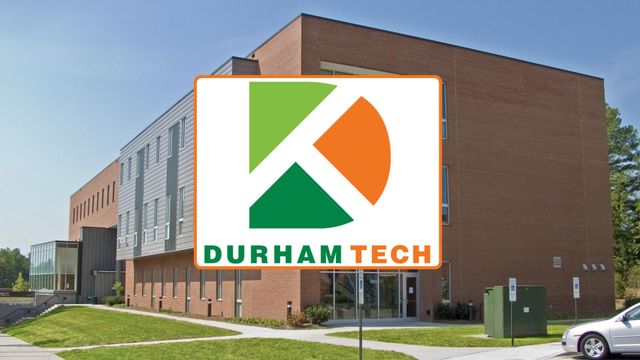State's money-saving idea concerns community colleges
In an effort to save the state money, Republican legislative leaders have suggested getting more students to attend community college for two years before transferring into the UNC system.
Posted — UpdatedCommunity college officials said Thursday, however, that such a move could hurt North Carolina's 58 two-year schools.
"We have resource challenges now with the students we serve," said Scott Ralls, president of the North Carolina Community College System. "I would hate to see a shift occur that would have a negative impact on our very important programs that help move students into the workplace."
The recession has led to booming enrollments at community colleges, as laid-off workers try to pick up new skills and families look for cheaper higher education options.
Durham Technical Community College, for example, has a record enrollment this year.
"Now, it's much more difficult to get into a class," said student Anne Lawoyin, who has been taking classes at Durham Tech for two years and eventually wants to transfer to a UNC campus to get a nursing degree.
Durham Tech President Bill Ingram said 85 percent of classes on his campus are filled and capacity is a major consideration for administrators.
"Between budget and between space, I think that we may be tapping out in the next year or two," Ingram said.
Shifting more university-bound students to community colleges will require more state funding and plenty of planning, he said.
"If, suddenly, the universities turn to community colleges to be the providers of two-year education, that has to be done very carefully," he said. "We have to think through what the legal implications might be. We have to think through capacity issues."
The state spends about three times as much per student in the UNC system as it does on those at community colleges, which prompted GOP lawmakers to include an enrollment shift as an item to consider when trying to limit education spending next year to $10.5 billion.
"As somebody who has worked with this budget for the last eight years, I can tell you (that) you can't do that," said Rep. Ray Rapp, D-Madison. "(It's) smoke and mirrors."
Ralls said the state needs to change how it funds community colleges before trying to push students onto their campuses. Unlike the UNC system, which gets a state appropriation based on enrollment projections, community college funding is based on a campus' enrollment the previous year.
Randolph County Republican Sen. Jerry Tillman, co-chairman of the Senate Appropriations Subcommittee on Education, said that if community colleges get stretched too thin because of enrollment growth, the state might eventually have to cap enrollment at both university campuses and community colleges.
Ralls said that would be a mistake, noting the colleges wouldn't be able to offer job training to workers following a plant closing.
"That would obviously be something that would be very concerning to us because it limits our ability to help North Carolina," he said.
• Credits
Copyright 2024 by Capitol Broadcasting Company. All rights reserved. This material may not be published, broadcast, rewritten or redistributed.






